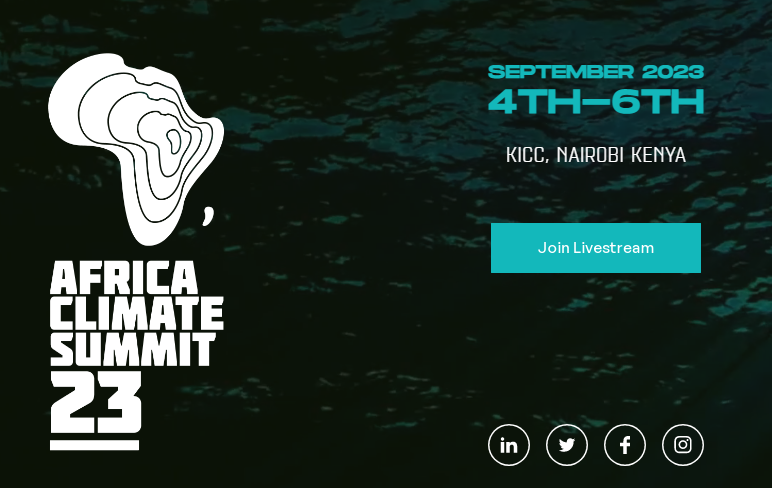
5 Sep 2023
Africa Climate Summit Opens in Nairobi - US, China in Attendance
The inaugural Africa Climate Summit is being held this week in Nairobi, Kenya, and “aims to address the increasing exposure to climate change and its associated costs, both globally and particularly in Africa,” according to a statement from Kenyan President William Ruto.
Attendees include US climate envoy John Kerry, China's Environment Minister Huang Runqui, and UN Secretary-General Antonio Guterres. Sponsors from the developed world include the Rockefeller Foundation, Gates Foundation, and governments of Denmark, France, and Germany.
“With the expectation of escalating climate crises in terms of frequency and intensity, urgent action is required to mitigate these challenges,” Ruto said in advance of the event. “Climate action is not a Global North issue or a Global South issue. It is our collective challenge, and it affects all of us. We need to come together to find common, global solutions."
Ruto also mentioned Africa's potential to develop green energy, if financing for it can be found, as the continent's developing nations vie to improve their economies while not exacerbating the world's considerable greenhouse gas (GHG) emissions challenges.
Africa produces only 4% of the global economy's GHG at the moment, even as it holds 16% of the world's population. IDCA Research finds that a single nation, South Africa, produces 38% of all of Africa's emissions. The next nine top African emitters combined produce a cumulative amount matching South Africa. Those nations are Algeria, Nigeria, Morocco, Libya, Tunisia, Angola, Ghana, Kenya, and Sudan.
As in other parts of the world, countries with significant petroleum production are found at the top of the list of economic inefficiency when it comes to GHG emissions. Libya, for example, produces CO2 at a rate that is 10 times the rate of the US when measured against the size of their economies.
South Africa produces CO2 at a rate six times the US and three times that of China. Some nations, including Kenya, better the US and almost match the EU in terms of their economic efficiency in producing GHGs. Other leaders in this are are found throughout East Africa, and also include Nigeria.
But the least-developed Africa nations, with little industry or traffic compared to the rest of the world, produce GHGs with an economic efficiency below that of most of the developed world.
So the challenge facing Africa is to develop its economies, build sustainable power to support it, while also lessening its reliance on the petroleum industry.
Ruto touts Kenya's achievement in producing 92% of its power from renewable sources, and wants to effect significant reform in the world's financing system to support more clean-energy initiatives throughout the continent. “We bear the brunt of the crisis despite contributing the least to global warming, but we have chosen to lead by putting forward solutions that also support development across our continent,” he said on the summit's opening day. “Africa has ample renewable energy potential and resources to green its own consumption and meaningfully contribute to decarbonization of the global economy.”
Follow us on social media:


.d57b427b.png&w=3840&q=75)

















